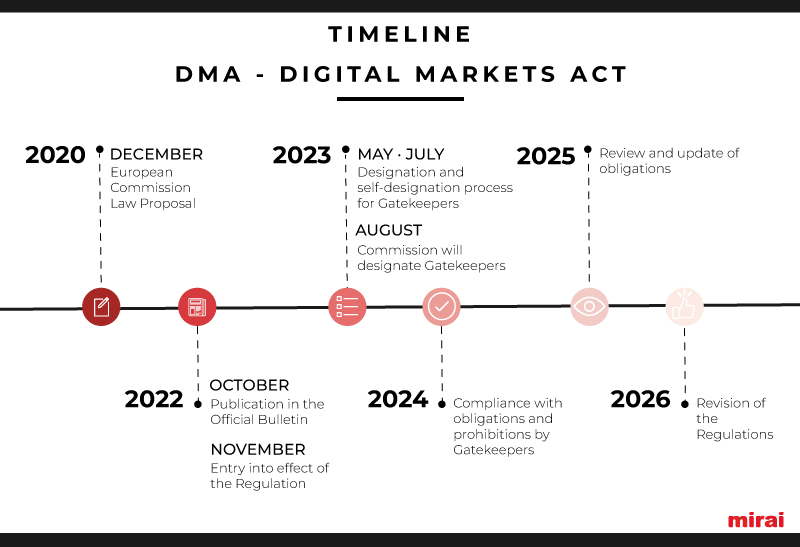In December 2020, the European Commission introduced a regulatory framework known as the Digital Markets Act (DMA).
NB: This is an article from mirai, one of our Expert Partners
The main objective of the DMA is to define regulations for digital markets that foster fair competition, and encourage innovation in the online economy, by creating a more balanced playing field for all the players in the digital ecosystem.
Subscribe to our weekly newsletter and stay up to date
Despite implying a major upheaval in the rules of the game for electronic commerce, the change seems to have gone largely unnoticed for large parts of the media in general and for the hotel industry in particular.
We have been closely and proactively monitoring the evolution of the regulations, and this post aims to provide valuable insight into what it means and its possible implications, especially given that the initial impacts of the legislation will begin to be seen in January 2024.

So what is the DMA and why does it affect you as a hotelier?
The DMA was proposed by the European Union (EU) to guarantee fair play in the digital environment and protect users. Its primary aim is to limit the power of companies that act as gatekeepers to the online platform economy and therefore control access to digital markets, ensuring they do not abuse their dominant market position.
The regulation therefore includes a number of obligations for gatekeepers and prohibits certain unfair practices. These include, for example, not favoring their own services over those of competitors on their platforms, not using data collected on their platforms to pursue unfair competition, or requiring them to provide vertical interoperability (allowing access and integration) with other platforms to allow fairer and more open competition.
Despite going largely unnoticed in the industry, these new regulations could have a major impact on the digital ecosystem for hotels. On the one hand, they will allow hoteliers to exercise greater control over their online distribution and negotiate fairer conditions with these online gatekeepers. On the other hand, the changes that gatekeepers will have to carry out to meet DMA requirements will have consequences that we are as yet unable to foresee, although we do foresee that the results will not always be what hoteliers expect.
Who does the European Commission consider online gatekeepers?

One of the key objectives of the DMA is to identify and control the major online platforms, the gatekeepers of access to electronic commerce. These platforms must meet certain criteria to be considered a gateway, including aspects such as the size and scope of the company’s services in the EU, its role as an intermediary between a large user base and a large number of businesses, and its potential long-term influence on the market.





